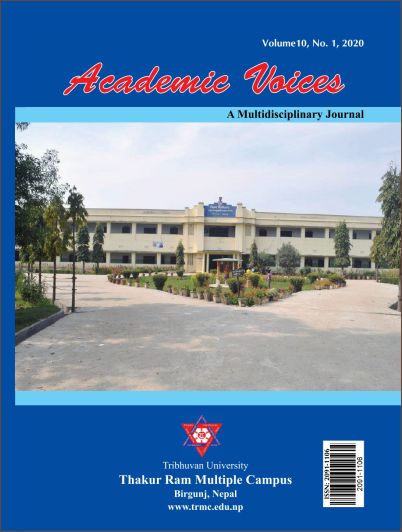Understanding Long-Term Social Change in Rural Nepal, 1970-2010
DOI:
https://doi.org/10.3126/av.v10i1.74260Keywords:
countryside, social change, structural social change, social inequality, NepalAbstract
The sociological understanding of long-term social change has developed primarily along two streams of contesting arguments. While functionalists (such as Parsons, 1970) would understand it in terms of modernisation, for the Marxists and the political economists a historical understanding of the changing forms of class relations would reveal its true essence (Holton, 1985; 1981). Hence the debate continues as to what should constitute the central locus in a proper understanding of social change. To Norbert Elias, to have a true understanding of social change one should focus on “increased differentiation and integration,” as well as “decreased differentiation and integration” (Elias, 1994: 182ff), which together form the two main directions in the structural changes of societies. Sociological understandings of social change differ profoundly with other social sciences in their treatments of social change in the sense that sociology postulates social change of structural kind.
This paper explores dynamics in the capitalist market relations in Nepal’s agricultural sector and the resultant structural social change in Mahesh Khola, a village west of the capital city, Kathmandu. This paper unfolds how a process of transformation of the agricultural sector replicates a real development of the rural sector, resulting in social disruptions and widening social inequalities. I juxtapose such a long-term social change I discerned in Mahesh Khola with other studies of a similar kind, one in Thak village, closer to Pokhara (Macfarlane, 2001) and the other along the corridor or Siddhartha Highway, from Lumbini to Pokhara (Blaikie et al., 2002). In doing so, my emphasis will be on investigating how the society-market interface evolved in the dynamics of an agrarian society.
Downloads
Downloads
Published
How to Cite
Issue
Section
License
© Academic Voices: A multidisciplinary Journal
All rights reserved. No part of this journal may be reproduced in any form or by any electronic or mechanical means, including information storage and retrieval system, without permission in writing from the publisher/writers, except by a reviewer who may quote brief passages in a review.




